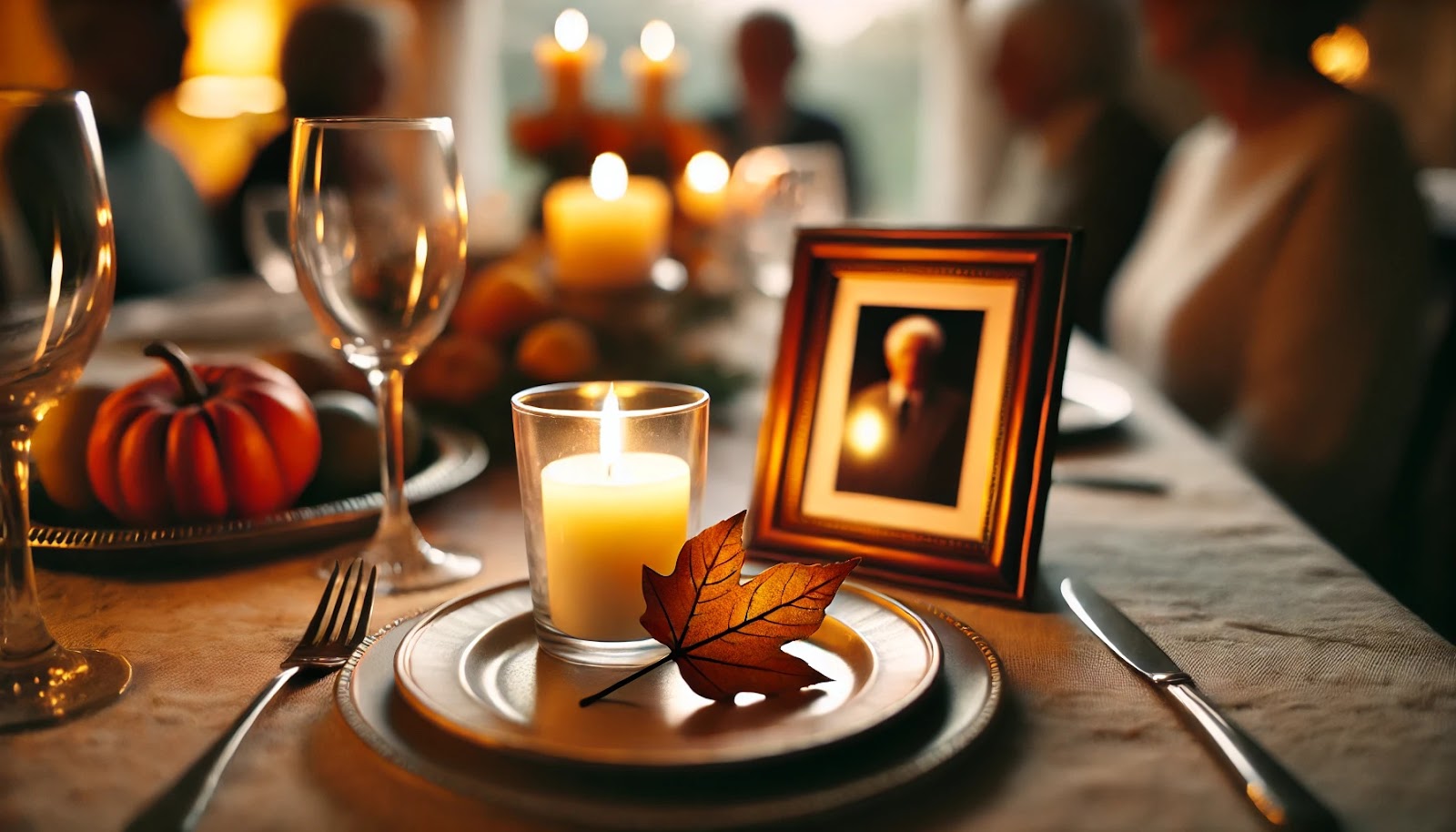Hello there, dreamers and deep thinkers,
Thanksgiving often comes wrapped in the promise of joy, laughter, and connection—a picturesque holiday steeped in gratitude. But for those of us navigating the waters of grief, the season’s glow may feel muted. The empty chair at the table, the silenced voice, and traditions that now feel incomplete can turn Thanksgiving into a bittersweet mix of longing and reflection.
How do we honor our pain while embracing the holiday’s spirit? Is it possible to find gratitude amid heartache?
Honoring the Empty Chair
Acknowledging a loved one’s absence is one of the most meaningful ways to heal. Avoiding the void doesn’t make it smaller; it only deepens the ache. Instead, consider rituals that recognize the person who’s no longer with you:
- Light a candle in their honor, letting its warmth symbolize their enduring light.
- Share a story about them, reliving the memories that brought joy.
- Set a symbolic place at the table to affirm their presence in your heart.
These small acts don’t erase grief, but they transform it. They shift the absence from an unspoken weight to a sacred space, allowing love to take center stage.
Gratitude and Grief: A Love Story
Grief and gratitude often seem at odds, yet they are deeply connected. Grief arises from deep love, and gratitude is its enduring echo. Both coexist, feeding into each other in ways that honor what’s been lost.
As you gather this Thanksgiving, reflect on the gifts your loved one gave you: lessons, laughter, cherished moments. Even in sorrow, gratitude can shine as a quiet reminder of their lasting impact. Allow both grief and gratitude to coexist—they are two sides of the same coin, each rooted in love.
The Healing Power of Expression
Psychologists emphasize that expressing grief openly helps in processing it. Writing is a particularly powerful tool. This Thanksgiving, consider penning a letter to your loved one. Write about:
- What you’re thankful for in their life.
- What you miss most about them.
- What’s been on your mind since their passing.
Writing allows your emotions to flow freely, creating a tangible connection to your loved one’s memory. It can also serve as a cathartic ritual that grounds you in both grief and love.
A Holiday on Your Terms
There is no roadmap for grieving through the holidays. You don’t have to meet anyone’s expectations—not even your own. This Thanksgiving, give yourself permission to navigate the day however feels right:
- Need a quiet moment? Take it.
- Feel joy bubbling up? Embrace it.
- Want to skip traditions? That’s okay too.
Grief doesn’t follow a linear path, and neither should you. Be compassionate with yourself, and if you need support, let loved ones know. Thanksgiving is about togetherness, and you don’t have to carry your grief alone.
Love at the Center of It All
Grief is love’s shadow, and gratitude is its light. Together, they form the full spectrum of human connection. This Thanksgiving, as you sit around the table, let yourself feel it all—the heartache, the laughter, the gratitude, the longing. Each feeling is a thread in the tapestry of love that binds you to those who are no longer with you.
Celebrate what remains. Honor what’s been lost. And know that the love you carry is eternal. Stay curious friends.
With love,
April
Cognitive Psycho




